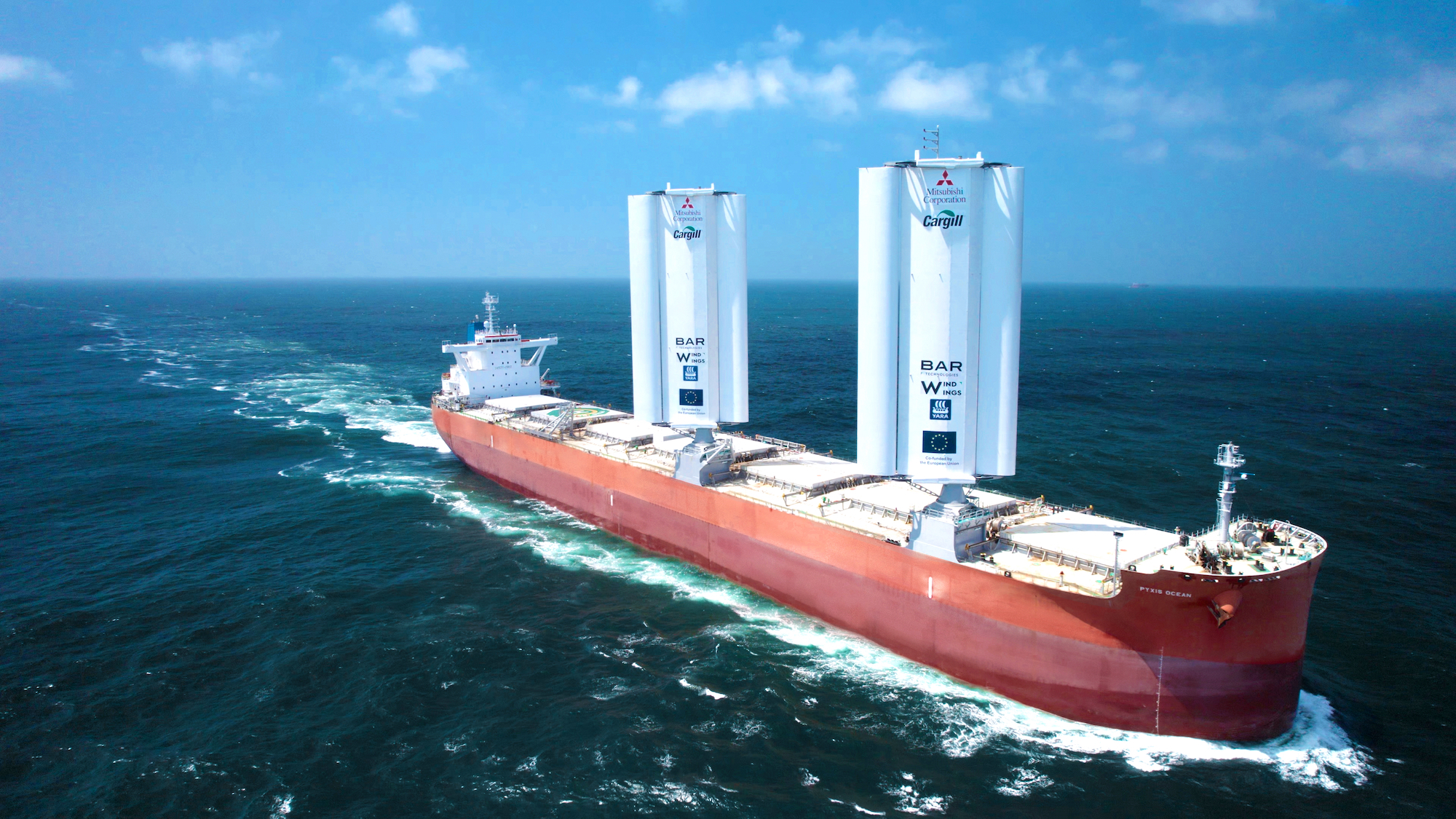

A massive cargo ship retrofitted with a pair of nearly 125-foot-tall “wing sails” has set out on its maiden voyage, potentially providing a new template for wind-powered ocean liners. Chartered by shipping firm Cargill, the Pyxis Ocean’s journey will take it from China to Brazil in a test of its two, rigid “WindWings” constructed from the same material as wind turbines. According to the BBC on Monday, the design harkening back to traditional boat propulsion methods could reduce the vessel’s lifetime emissions by as much as 30 percent.
Per an official announcement on August 21, Pyxis Ocean’s WindWings can save 1.5 tonnes of fuel per wing, per day. Combined with alternative fuel sources, that number could rise. During its estimated six week travels, the cargo ship’s sails will be closely monitored in the hopes of scaling the technology across both Cargill’s fleet, as well as the larger shipping industry. Speaking with BBC, one project collaborator estimated a ship using four such wings could save as much as 20 tonnes of CO2 every day.
[Related: These massive, wing-like ‘sails’ could add wind power to cargo ships.]
“Wind is a near marginal cost-free fuel and the opportunity for reducing emissions, alongside significant efficiency gains in vessel operating costs, is substantial,” explained John Cooper, CEO of project collaborator, BAR Technologies.
In addition to being a zero emission propulsion source, wind power is both a non-depleting resource as well as predictable. Such factors could prove extremely promising in an industry responsible for around 2-3 percent of the world’s CO2 emissions—around 837 million tonnes of CO2 per year. Less than 100 cargo ships currently utilize some form of wind-assisted technology, a fraction of the over 110,000 operational vessels throughout the world. Depending on Pyxis Ocean’s performance, the massive WindWings could help spur increased green tech retrofitting, as well as new builds already coming equipped with the proper systems.

Elsewhere, similar wind-based vessel projects are already underway. Earlier this year, the Swedish company Oceanbird began construction on a set of 40-meter high, 200 metric ton sails to be retrofitted on the 14-year-old car carrier, Wallenius Tirranna. According to the trade publication Offshore Energy, one of Oceanbird’s sails could cut down emissions by 10 percent, saving around 675,000 liters of diesel per year.
“The maritime industry is on a journey to decarbonize—it’s not an easy one, but it is an exciting one,” said Jan Bieleman, president of Cargill’s ocean transportation business.
